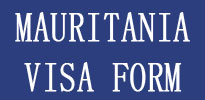Botswana: Importers threaten to increase prices of goods if government implements tax to fund African Union
2017/06/15

Importers have threatened to increase the prices of goods if the government implements the 0.2% import tax to fund the AU.
Mr Samson Awingobit Asaki, Executive Secretary of the Importers and Exporters Association, told the Ghana News Agency that the implementation of the tax would increase the cost of operation for importers.
Mr Asaki added that at the same time as it happens like that, they would have no other choice than to transfer the cost onto the prices of goods for the consumers.
Presidents Nana Addo Dankwa Akufo-Addo announced cabinet’s approval of the 0.2 % import tax some days completed in a speech read on his behalf during the closing ceremony a five-day orientation workshop for newly appointed envoys.
According to President Akufo-Addo, the new tax which would be on all imports outside of the African Union (AU), was aimed at supporting the activities of the AU to ensure that it would not go begging from other nations.
But, the Importers who are not happy about the new tax as they described it as a “stab in the back” connotes that government was using other means to replace the taxes it scrapped early this year.
Mr Asaki added that giving importers one % tax reliefs and introducing a new tax would only create disaffection for them as consumers may blame them for not reducing prices of goods next the announcement of tax reliefs by government during the budget reading.
He explained that majority of Ghanaian importers import their goods from outside the AU therefore implementing this tax reduction would affect everybody.
He however stated that importers were not against the government supporting activities of the AU but government should look at getting the money from other sectors.
- Related Articles
-
Children on the move from Africa do not first aim to go to Europe, new UNICEF study shows
2017/07/29 Children on the move into Europe from Africa take the decision to leave home on their own and do not initially intend to go to Europe. For the majority the systematic trauma and abuse they witnessed or suffered in Libya caused them to flee to Europe and take the terrifying Central Mediterranean sea route, according to a new study commissioned by UNICEF and carried out by REACH. -
WHO lauds Africa’s progress in malaria, HIV control
2017/07/29 The World Health Organisation (WHO), has commended the African region for making significant evolution in malaria control in the last five years. Dr Matshidiso Moeti, the WHO Regional Director for Africa, in a statement in Abuja on Tuesday, said malaria incidence and mortality rates had declined by 42 % and 66 % respectively between 2000 and 2015. Moeti made the commendation in Kigali, Rwanda, while speaking at the Initial Africa Health Forum, launched by WHO, Africa and the Government of Rwanda. -
Botswana's economy grows sluggishly in first quarter of 2017
2017/07/19 Botswana's economy expanded 0.2 % quarter-on-quarter in the initial three months of 2017 versus 0.1 % in the final quarter of last year, data from the statistics office showed on Friday. On a year-on-year basis, gross domestic product grew by 0.8 % in Q1 next expanding by 4.2 % in Q4 of 2016. -
Tennis ball-sized 'diamond in the rough' too big to sell
2017/07/19 In the mysterious world of diamond mining, it turns out that some stones are too large to sell. Canada's Lucara Diamond Corp will have to cut its tennis ball-sized rough diamond to find a buyer, industry insiders say, following Sotheby's failed auction for the world's major uncut stone last summer. It's not the ending that William Lamb wanted for his 1,109-carat stone, named 'Lesedi La Rona', or 'Our Light' in the national language of Botswana where it was mined. -
South Africa plays an active role in the AU
2017/07/17 Absence of Zuma and Ramaphosa raises eyebrows, quoted Liesl Louw-Vaudran, a consultant at the Institute of Security Studies (ISS), who said South Africa was “ceding power to other players on the continent, such as Rwanda’s President Paul Kagame and the current AU chairperson President Alpha Condé of Guinea”.
-
- Botswana News
-
- BOTSWANA: Children on the move from Africa do not first aim to go to Europe, new UNICEF study shows
- BOTSWANA: WHO lauds Africa’s progress in malaria, HIV control
- BOTSWANA: Botswana's economy grows sluggishly in first quarter of 2017
- BOTSWANA: Tennis ball-sized 'diamond in the rough' too big to sell
- BOTSWANA: South Africa plays an active role in the AU
- BOTSWANA: The SADC Wrap: Magufuli marches on against mines
- Trending Articles
-
- ITALY: Italy seizes NGO rescue boat for allegedly aiding illegal migration
- KENYA: Kenya's new $3.2 billion railway frustrates customers ahead of polls
- GUINEA: Thousands protest against Guinea's Conde over election delays, insecurity
- SOUTH SUDAN: South Sudanese refugees in Uganda near million mark
- TANZANIA: Tanzania: Searchlight Cast On Barrick ...as the Government Seeks Fair Share of Mining Sector Revenues
- CHILE: Chile presidential candidate Pinera would modify pension system





.gif2_.gif?1356029657)





